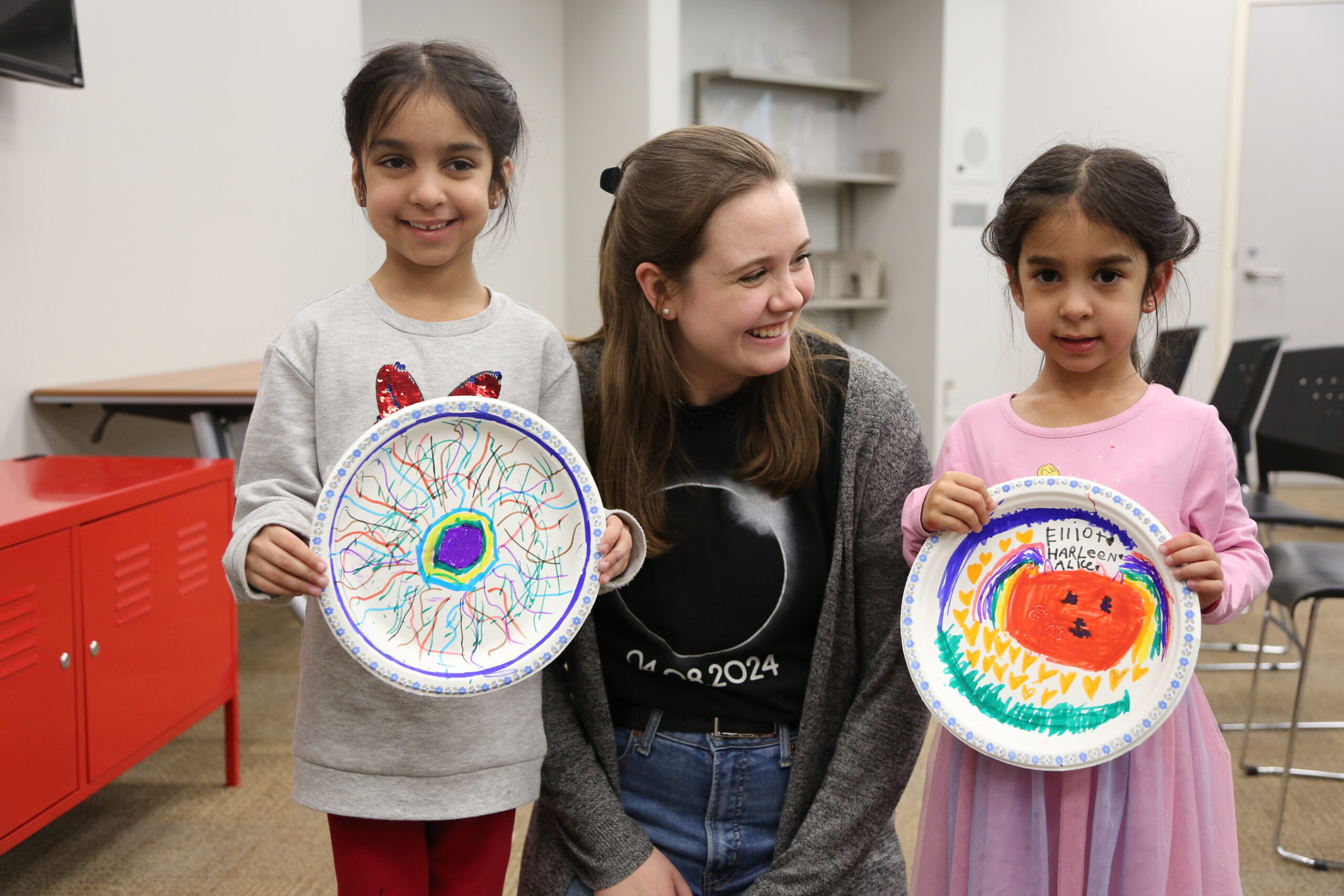September Started with Three New Chairs
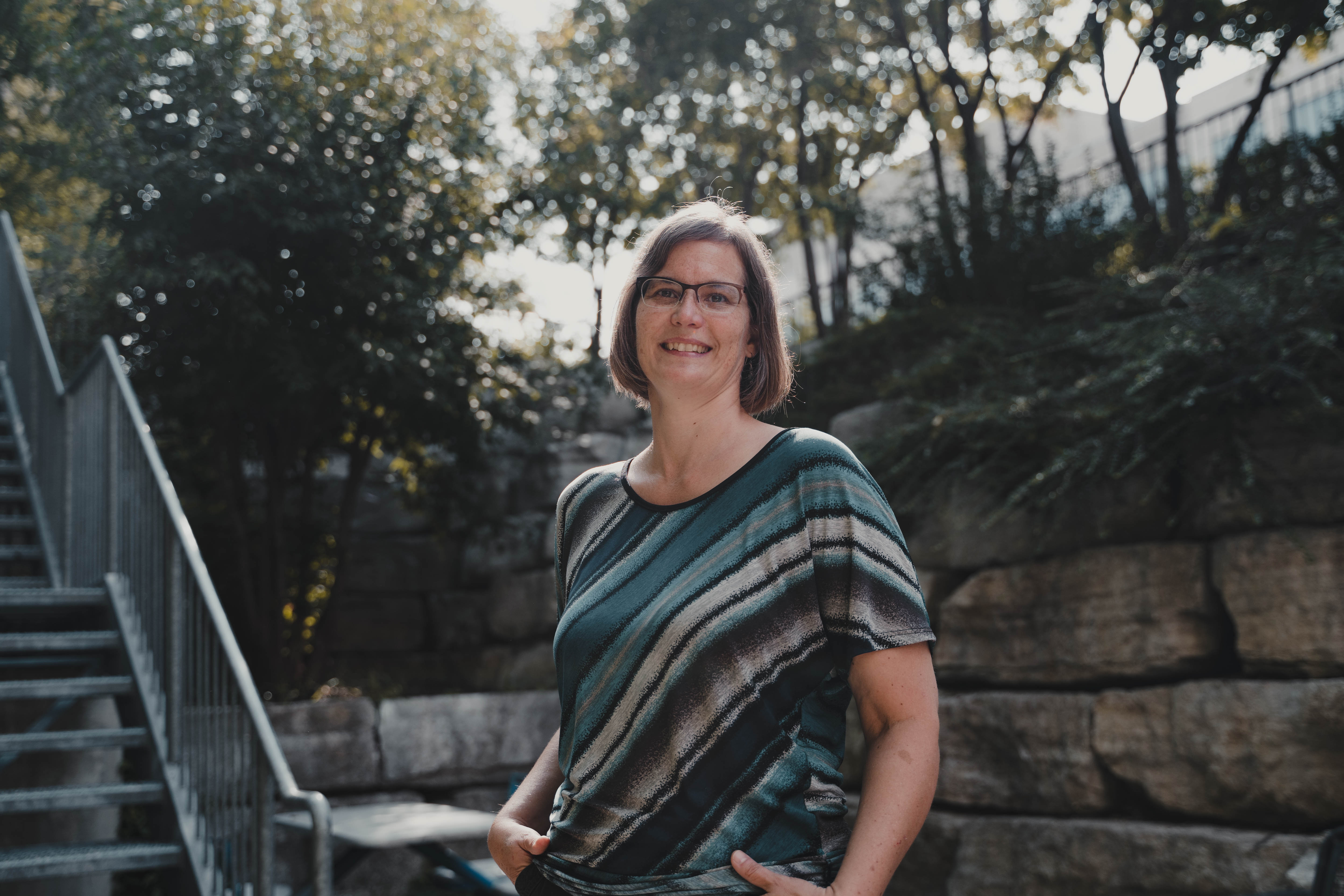
Alison Sills
Chair, Department of Physics & Astronomy
Why are you serving as Chair of Physics & Astronomy?
It was basically my turn – I’m at the right career stage and I have the most interest in and experience with administration of all the people who were hired around the same time as me. It’s a great department to be leading, so that part of the decision was easy.
What are you most proud of when it comes to your Department? What do your colleagues in Physics & Astronomy do exceptionally well?
It’s all about the people. From the undergrads to the most senior emeritus professors, we’re a group of very strong-minded individuals, yet all of us believe in the Department and in supporting each other and moving the whole collective forward. We argue like crazy about the best ways to do that but we also listen to each other and respect each other’s opinions.
In your opinion, what’s the best kept secret when it comes to Physics & Astronomy?
I can think of two: the international reputation of our researchers (which isn’t really a secret in the physics community, of course) and the fact that a degree in physics really does set students up for success in anything they want.
What’s the one thing you most hope to accomplish as Chair?
At the moment, I’m still concentrating on the short term and working to set the department up for success in the post-COVID world. The last few years have been so disruptive, and the isolation means that the social connections have been broken down somewhat. We need to build those back up again. And also look at what the last 18 months have taught us – what are the most important pieces of working together as a department that we need to enhance and strengthen, and what activities should be relegated to ancient history? I want to lay the structure so that our department members can be as successful as possible in their different areas of expertise.
How would you describe your leadership style?
Collaborative, mostly, with a healthy dose of knowing when to say that we’ve had enough discussion and it’s time for action.
What do you enjoy doing when you’re not working?
Yoga, knitting, reading, gardening and Scottish country dancing.
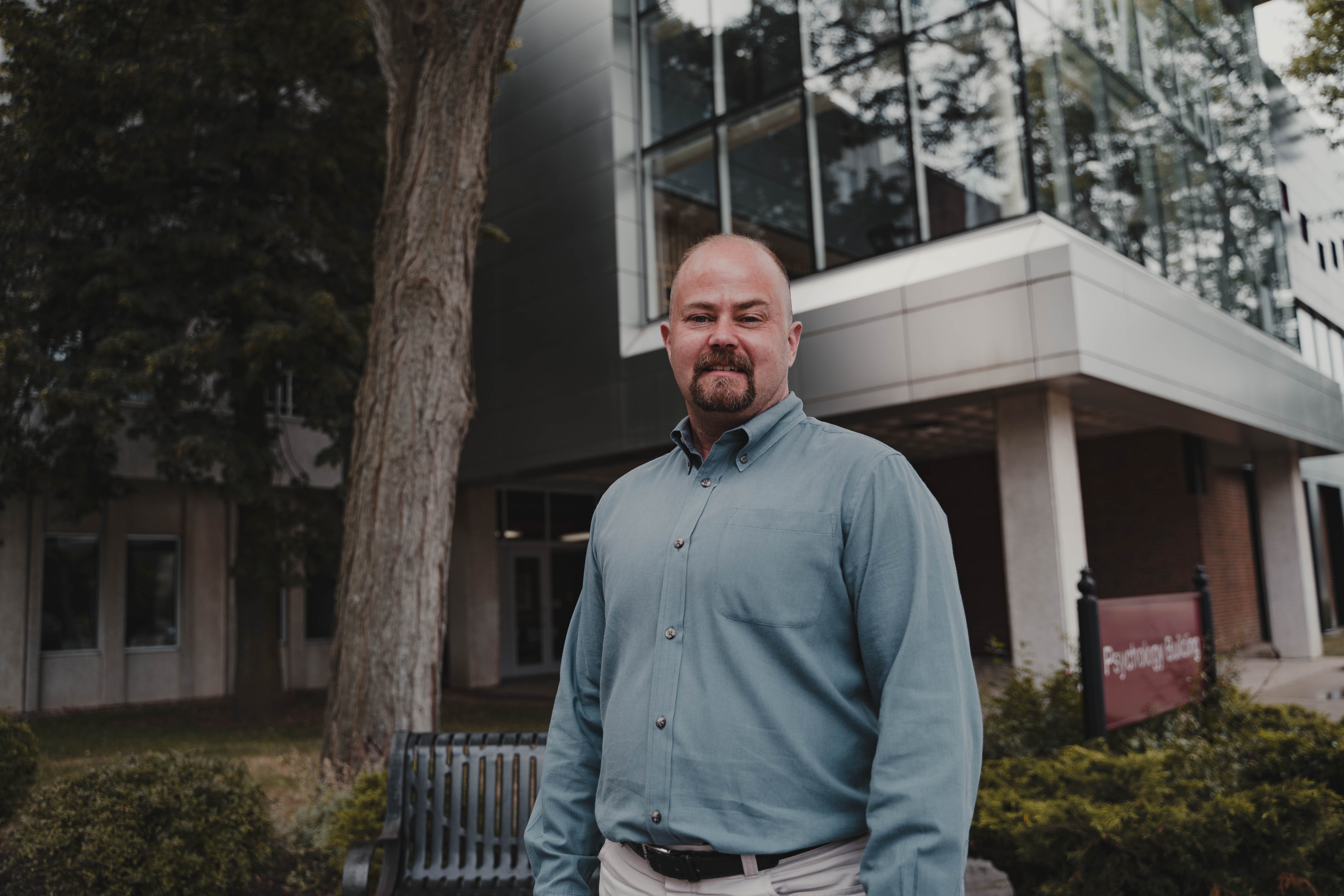
Mel Rutherford
Chair, Department of Psychology, Neuroscience & Behavior (PNB)
Why are you serving as Chair of Psychology, Neuroscience & Behavior?
The truth is, I felt called to serve my department. For a variety of reasons, I believe that I am the right person for this moment. My values are very much aligned with PNB’s. I have tremendous respect for the integrity of my colleagues, and I am ready to dedicate myself to leading and developing this department over the next five years. I believe we are going to do great work.
What are you most proud of when it comes to PNB? What do your colleagues do exceptionally well?
Faculty and graduate students do an exceptional job of integrating undergraduate students into our internationally recognized research labs. This gives students world-class mentoring and unique experiences. PNB is a great place to be an undergraduate student, especially if you are interested in getting involved in research. Undergraduates have an opportunity to work in laboratories, become part of the research team, work closely with graduate students and faculty, and ultimately complete their own research project as a thesis student.
In your opinion, what’s the best kept secret when it comes to PNB?
Our outstanding new Assistant Professors. They may be secret for now, but believe me, you’ll be hearing about them soon. They are knocking it out of the park, and both graduate and undergraduate students will have an opportunity to work and learn with them in the classroom and in the lab.
What’s the one thing you most hope to accomplish as Chair?
With Kathryn Murphy as our new Associate Chair (Research), PNB is building on our internationally recognized research. We are creating new and impactful ways to support research. This includes strategic research planning, providing grant writing support, facilitating cross-departmental opportunities, and providing strong mentorship for junior faculty members. Ultimately, we want to provide help and resources to support the research of faculty, postdocs, graduate students and undergraduate students.
How would you describe your leadership style?
- Talk with people to help them clarify their own goals.
- Remove barriers and find ways to support those goals.
What do you enjoy doing when you’re not at work?
If I’m not at a swim meet cheering my kids to the finish line, then I’m driving them to swim practice. And I’d be lying if I said I didn’t love doing both those things.
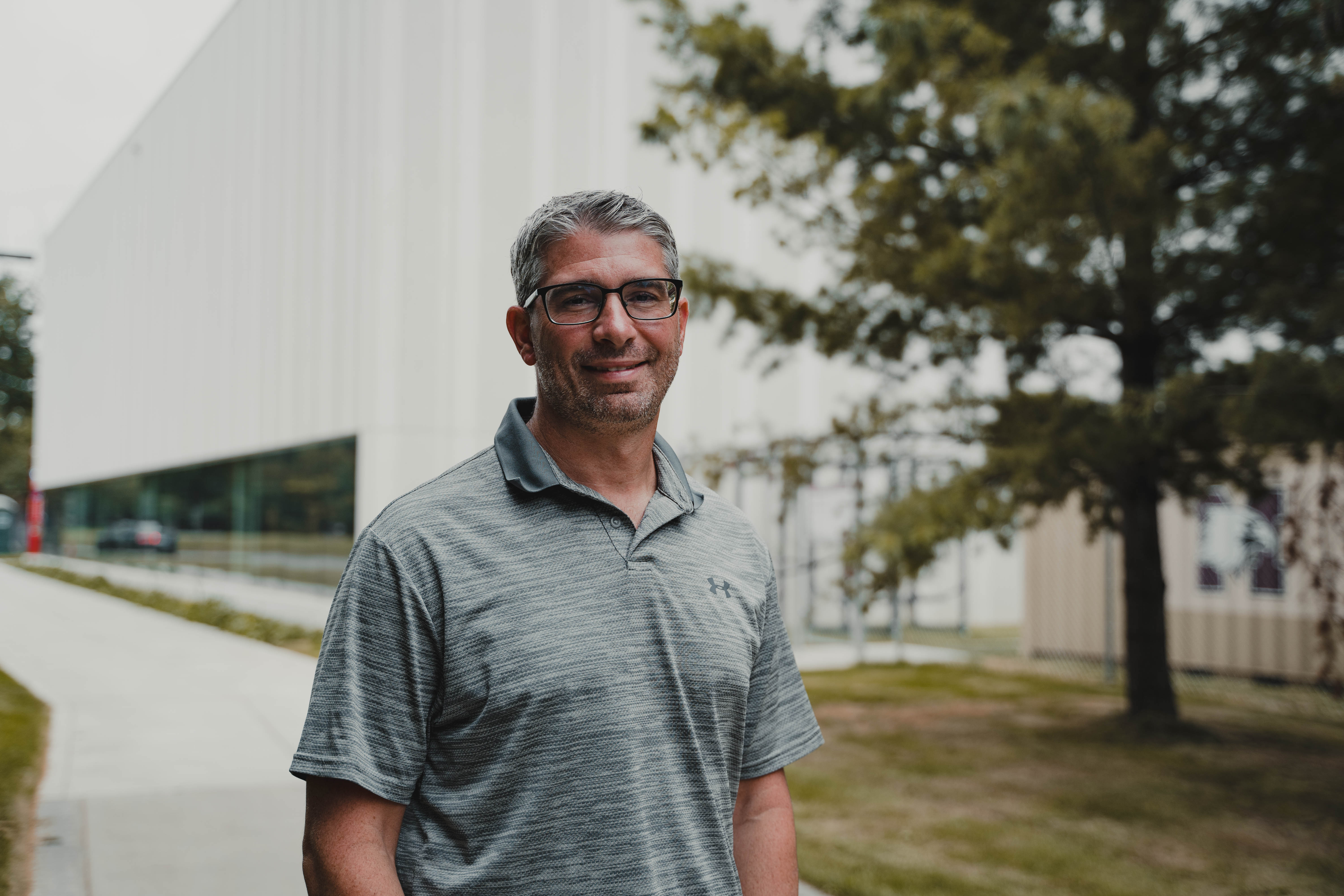
Gianni Parise
Chair, Department of Kinesiology
Why are you serving as Chair of Kinesiology?
Kinesiology at Mac has been my home for many years. I graduated from the undergrad and grad programs in Kinesiology before leaving for a post doc. Being hired back into Kinesiology at McMaster was a tremendous honour. In short, the program has given me so much. Leading and serving the department is a way for me to give back and to continue building upon what is already a world-class department. I feel very passionately about our department and I’m excited at the opportunity to make it even better than it already is.
What are you most proud of when it comes to Kinesiology? What do your colleagues do exceptionally well?
Kinesiology at McMaster is recognized as one of the top programs in the world. That reputation has been built by our students, faculty and staff. Faculty members in Kinesiology have research programs in a number of sub-disciplines and many are recognized globally for their work. Research in Kinesiology has attracted many awards, including several Canada Research Chairs. We are a research powerhouse.
In your opinion, what’s the best kept secret when it comes to Kinesiology?
I think the fact that Kinesiology at McMaster is ranked so highly, internationally, would surprise some people.
What’s the one thing you most hope to accomplish as Chair?
I’m taking over a department that has been exceptionally well-led and managed for many years. Part of what I hope to do is simply maintain this high level of performance. More important for me is to find ways to take a department that’s already firing on all cylinders and put it into an even higher gear. My plan is to roll out several initiatives that target the undergrad program, the grad program, and the research enterprise. One initiative that I plan to launch is the development of a maker space for Kinesiology students. These kinds of spaces are usually found in Engineering departments and promote innovation and the commercialization of ideas. I believe Kinesiology has a lot to offer in this space and hopefully, through key collaborations, our undergrad and grad students will get the opportunity to explore their creative ideas and lead to activity with other partners like the Forge.
How would you describe your leadership style?
I like to think that my leadership style is consultative, thoughtful and empowering. I also like to think bigger than the day-to-day challenges and lead with a bit of an edge and a bit of risk.
What do you enjoy doing when you’re not working?
Given my department, It’s probably no surprise that I enjoy taking care of my fitness and health. I love spending time with my kids, cycling, reading and watching a good show.
Related News
News Listing
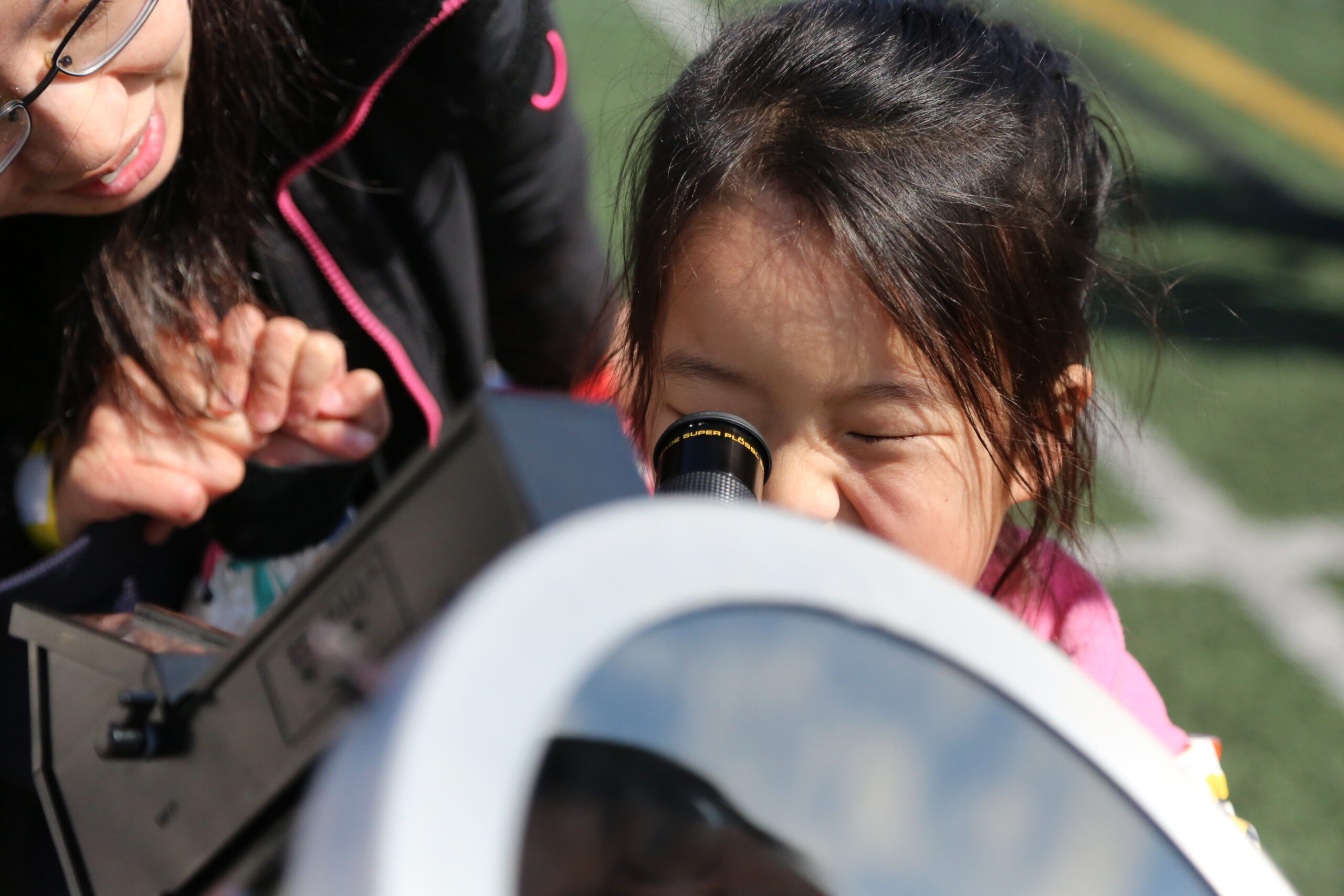
Physics and Astronomy grad students offer out-of-this-world view at total solar eclipse viewing party
Community, Engagement excellence, Graduate students
April 8, 2024
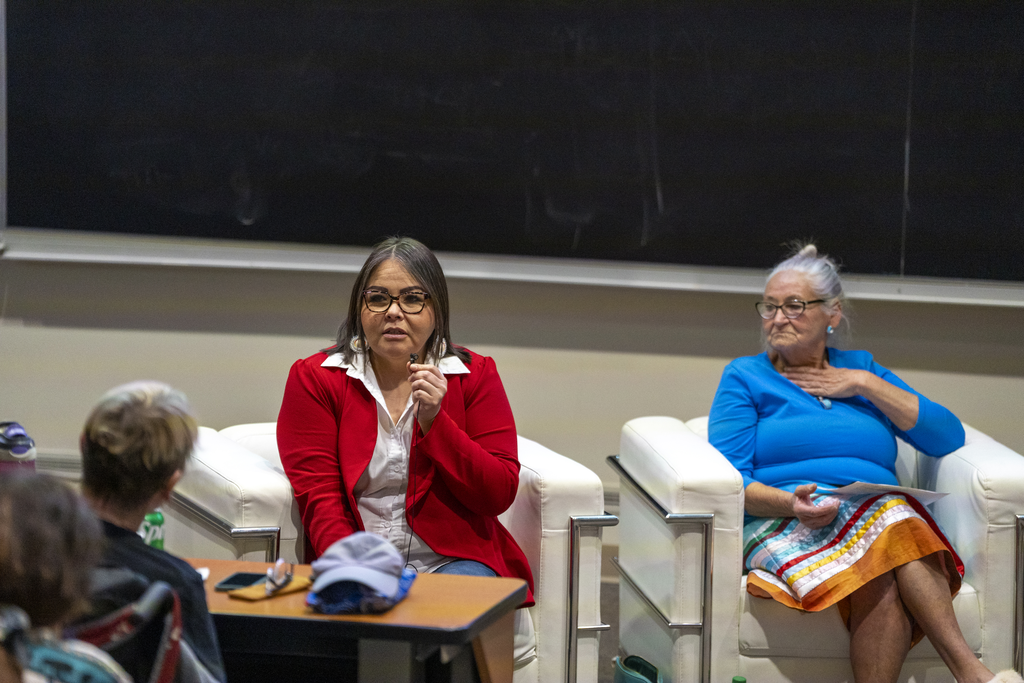
The greatest of love stories: Panel shares Indigenous perspectives on the eclipse and astronomy
Community, Faculty, Outreach, science communication
April 8, 2024

